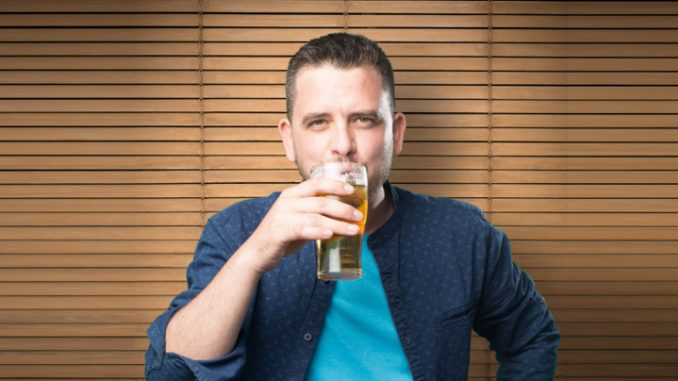
You enjoy watching sports rather than playing? So do I. That doesn’t mean that we can’t relax in front of the telly and drink a few beers without becoming fat. I mean come on! If we had to eat a completely clean and pure diet all the time, everyone would be walking around in XXL shirts covering their protruding beer belly.
For those of you who are already at this stage, don’t take offence, because this article will help you keep your lifestyle and actually lose fat at the same time.
The truth of the matter is that beer, and other simple carbohydrates can lead to fat gain, and especially to what is commonly known as ‘wheat belly’, which is basically an extended stomach, due to a few simple reasons that we can easily prevent. So let’s dive right into it and see how we can lose the belly without giving up our favourite beverage.
Calories in vs. calories out
Mother Nature can be cruel, but if we get to know her better, she will show us simple tricks to lose fat. The root of all fat gain and fat loss issues are calories. Calories are basically fuel units that every living creature needs to sustain itself.
Think of the body as a car, or better yet as a sponge. A car needs a certain amount of fuel to get you from point A to point B. The same is true for our bodies. We need an X amount of calories daily to be able to live, or to maintain our current weight. But why I say that our bodies are more like a sponge is because we can soak up as much fuel as we want. No one is stopping us from eating double the amount of calories we need. Our body will store it as fat and adjust accordingly by becoming larger. But if we intake less fuel than our body needs, it will simply become smaller.
It doesn’t matter what food source your calories are coming from. It can be fruit, vegetables, rice, pasta, or BEER. If you’re trying to lose fat, the only thing to worry about is eating less calories than your body needs in order to sustain itself. So you can keep drinking the beer, but cut down on some other foods and you’ll lose fat in the same way thanks to this simple mechanism.
Drink a six pack and have a six pack
You can have your beer and drink it too. But like I said, the caloric intake needs to be lower than your bodies expenditure. You can do this through lowering the amount of calories you eat, or by increasing the amount of calories you burn.
The Ancient Egyptians were called the ‘Bread Nation’, because they ate bread and drank beer most of the time. But no one ever called them fat, nor do their statues display any signs of obesity. There is no beer belly to be found, but according to the beer belly myth this would have to be the case. Well, the peasants, slaves, and warriors of Egypt were constantly working in the fields, going on marches, or if you were an unlucky slave – building a pyramid for the Great Pharaoh.
If you’re doing physical labour all day, I bet you could drink as many six packs as you want and remain lean and mean. Apply this philosophy to your own lifestyle. Drink beer, but also do some work to spend those calories. Hitting a treadmill for an hour every once in a while, or regularly lifting weights will put those carbohydrates to good use.
Conclusion
Beer is not the enemy. The beer belly is simply an accumulation of fat from eating excess calories, and also the gases that are produced within the intestines due to the bacteria that enjoys digesting wheat. If you keep the caloric intake within a reasonable range, and hit the gym a few times a week, you will have to say goodbye to your old friend and welcome a powerful set of six packs that are hiding behind it.

